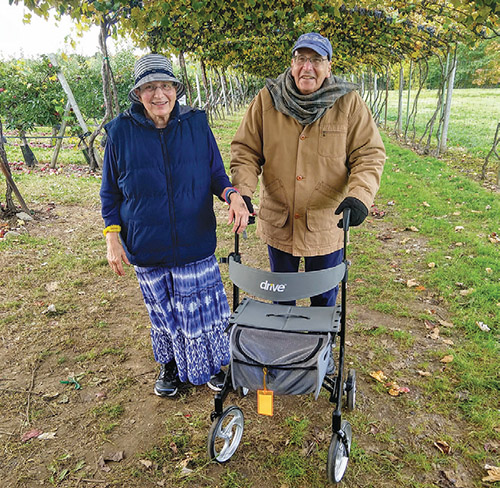
On Sunday, January 12, 2020, I reached out to Rabbi J.J. Schacter with a “make a wish” request for my father, Morris Robinson, who was in hospice at home with end-stage pancreatic cancer. Throughout his life, my father’s Jewish learning was largely self-driven, and he found great meaning in the teachings of Rav Soloveitchick and Rabbi Jonathan Sacks (one of my former roommates said my father once referred to Rabbi Sacks as “my friend Jonathan”). My father not only had the opportunity to hear from Rabbi Sacks in community shiurim, but also greatly enjoyed reading his books and sharing insights from them with us. While my father hadn’t requested that I try to help him speak with Rabbi Sacks, I hoped my father would find the opportunity meaningful.
Rabbi Schacter agreed to try to make a connection and reached out to Rabbi Sack’s assistant, Joanna Bennaroch, in London. Rabbi Schacter said, “Let’s see what happens,” a line I have since quoted and used in other contexts.
We didn’t receive a response on Monday. On Tuesday morning, January 14, Joanna emailed at 8:29 a.m. that the request from Rabbi Schacter had gone into her junk mail and she would see what Rabbi Sacks could do. At 8:47 a.m. she sent an email that Rabbi Sacks would be able to call that afternoon between 1:30 and 2 p.m.
The previous day had been filled with medical crises and myriad stresses. Suddenly, with this news, everything calmed down. My parents sounded hopeful and calm for the rest of the morning. While I had taken time to speak with my father each day for the previous several days to reminisce, I decided to wait until Wednesday morning to call to hear about the conversation, but by then it was no longer possible for him to communicate. Rabbi Sacks was able to have this “make a wish” call with literally hours to spare before the opportunity completely disappeared.
Here are some highlights my mother shared. My mother said that Rabbi Sacks was extremely kind, as the call somehow got dropped twice, and he called back twice. Even though the total duration of the call was not more than 15 minutes, both parents were very grateful for the time, and both found the conversation very meaningful.
My mother said that Rabbi Sacks’ drashot (teachings) are very widely distributed, and that rather than share some of his Torah, he wanted to hear from my father. My father shared the following:
I remember something that I learned from you when you spoke at Lincoln Square Synagogue many years ago. This is the story you shared: In the time shortly following the Six Day War, the Eilat region was not yet built up. A marine sailor was riding a patrol ship through the Gulf of Aqaba. There wasn’t very much to see, but the sailor said, “אֲבָל זֶה שֶׁלָּנוּ”, but this is ours. The nimshal is that when I was told yesterday by the oncologist that nothing else can be done medically to help me, I said, but this is mine. This is my life, this is what it is, and it’s time to be שמח בחלקו (grateful) about what we do have.
Over the years, my mother has heard my father mention the line אֲבָל זֶה שֶׁלָּנוּ, and I have as well.
Toward the end of the call, Rabbi Sacks said, “Debbie is your best bracha (blessing),” which my mother greatly appreciated. He concluded the call by saying “I wish you strength.”
I had no idea at the time that Rabbi Sacks himself was a cancer survivor, and, evidently, struggling with a recurrence. This knowledge adds to the kindness that he did for my father, to whom his only connection was that of being a fellow Jew.
I wanted to end by sharing an insight from Talking Talmud, Daf Yomi insights by Anne Gordon and Dr. Yardaena Osband. On Brachot 5, Dr. Osband shares an insight of Rabbi Schacter’s in the podcast about תְּשׁוּבָה, תְּפִילָּה, וּצְדָקָה (repentance, prayer, and charity): When we do these acts, they don’t necessarily remove the bitter decree but rather diminish the רֹעַ, the bitterness of the decree. I found this insight very helpful in thinking about my family’s situation, as the kindnesses that were done for my family during my father’s illness, including this extremely special one by Rabbi Sacks, arranged by Rabbi Schacter, remind us of the goodness in the world.










